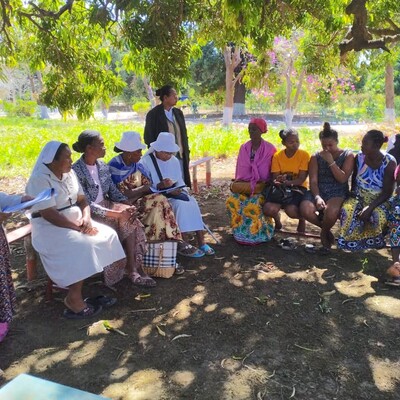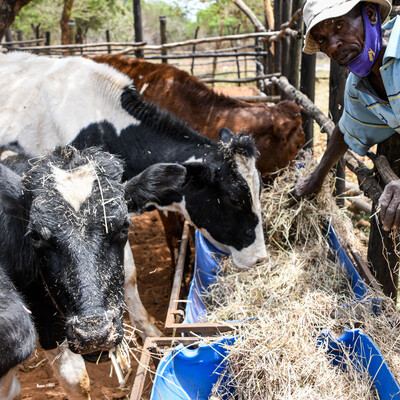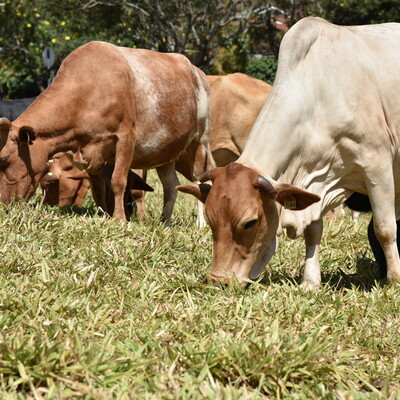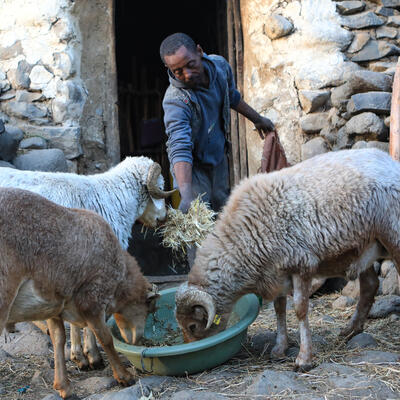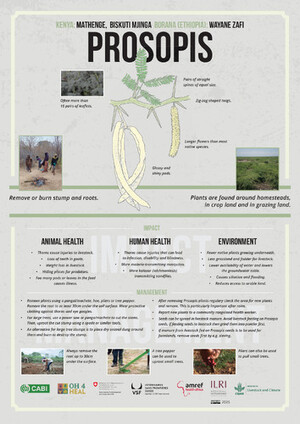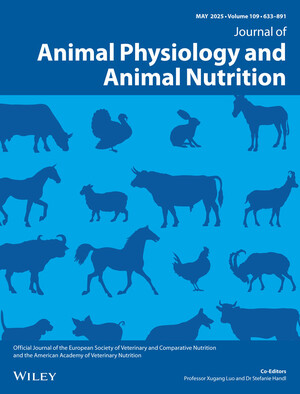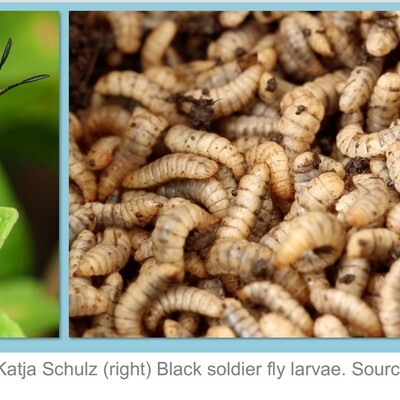

The ILRI Forage Genebank celebrates 40th anniversary and the launch of exciting new forage and climate research
The International Livestock Research Institute (ILRI) marked the 40th anniversary of its Forage Genebank, which is dedicated to the conservation and use of global forage genetic resources, on 15 May 2024.
This milestone event at the ILRI Addis Ababa campus commemorated four decades of ILRI and CGIAR’s pioneering efforts in preserving and optimizing the use of forage biodiversity in low- and middle-income countries. With more than 18,000 accessions, from nearly 2,000 forage species, the ILRI Forage Genebank continues to be the source of feed solutions for livestock across Ethiopia and Africa.
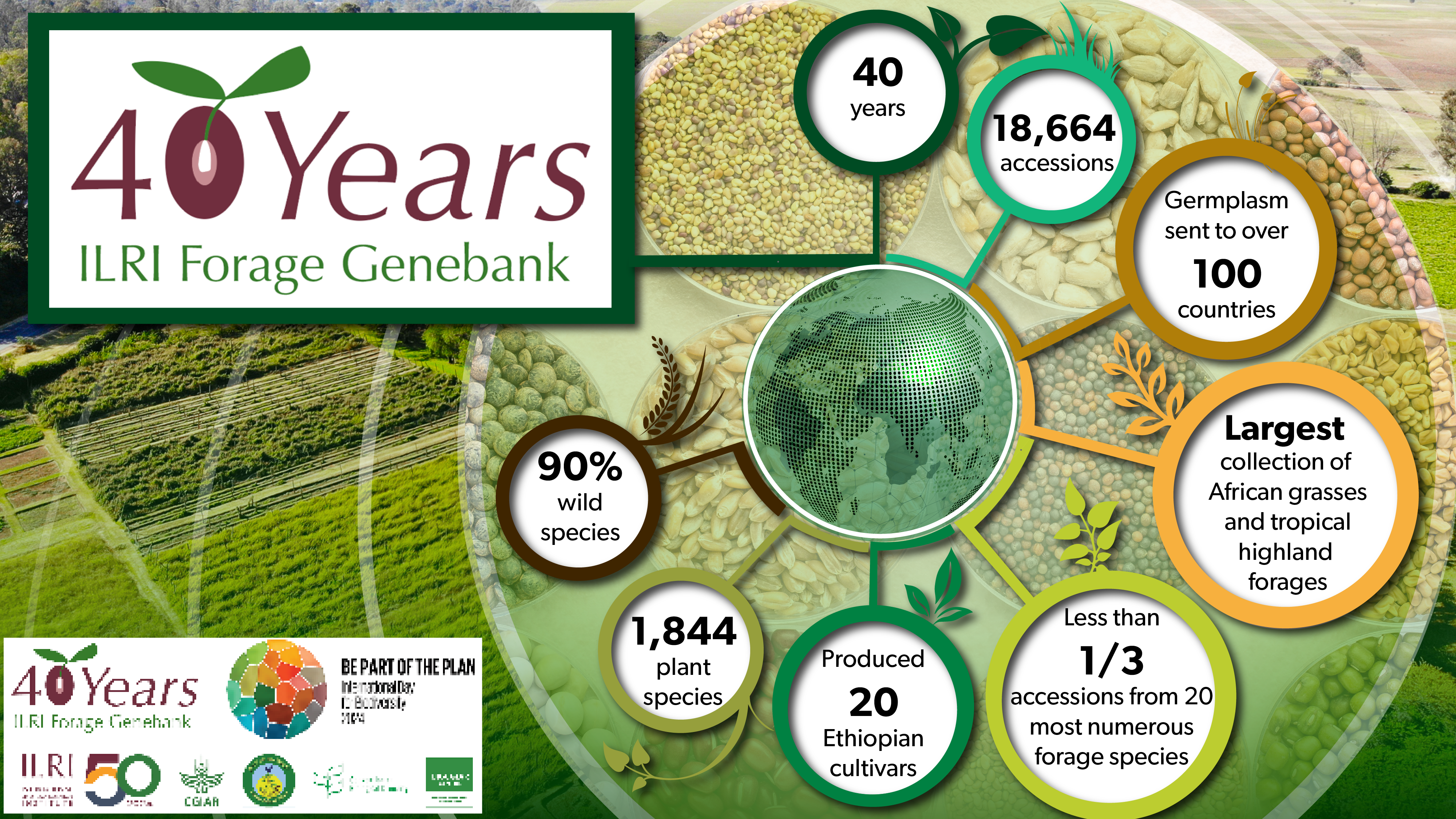
Forage diversity research is the cornerstone of ILRI's Feed and Forage Development program, which aims at tackling the challenges posed by insufficient and variable animal feed supplies and climate-related impacts, which hinder livestock productivity in tropical nations.
The availability and diversity of forages are integral to livestock productivity, as improved forages enhance livestock output. The conservation of forage genetic diversity holds profound economic significance, particularly for disadvantaged regions worldwide. With the escalating variability of climate change, there arises an urgent need for adapted forages capable of thriving in ever-changing ecosystems.
As ILRI celebrated the 40th anniversary of the genebank, the Ethiopia Biodiversity Institute (EBI) was preparing to celebrate the annual International Day for Biological Diversity on 22 May. With this year's theme, ‘Be part of the plan’, the celebrations created a momentous occasion to honour decades of commitment to the preservation of biodiversity and the conservation of vital genetic resources for future generations.
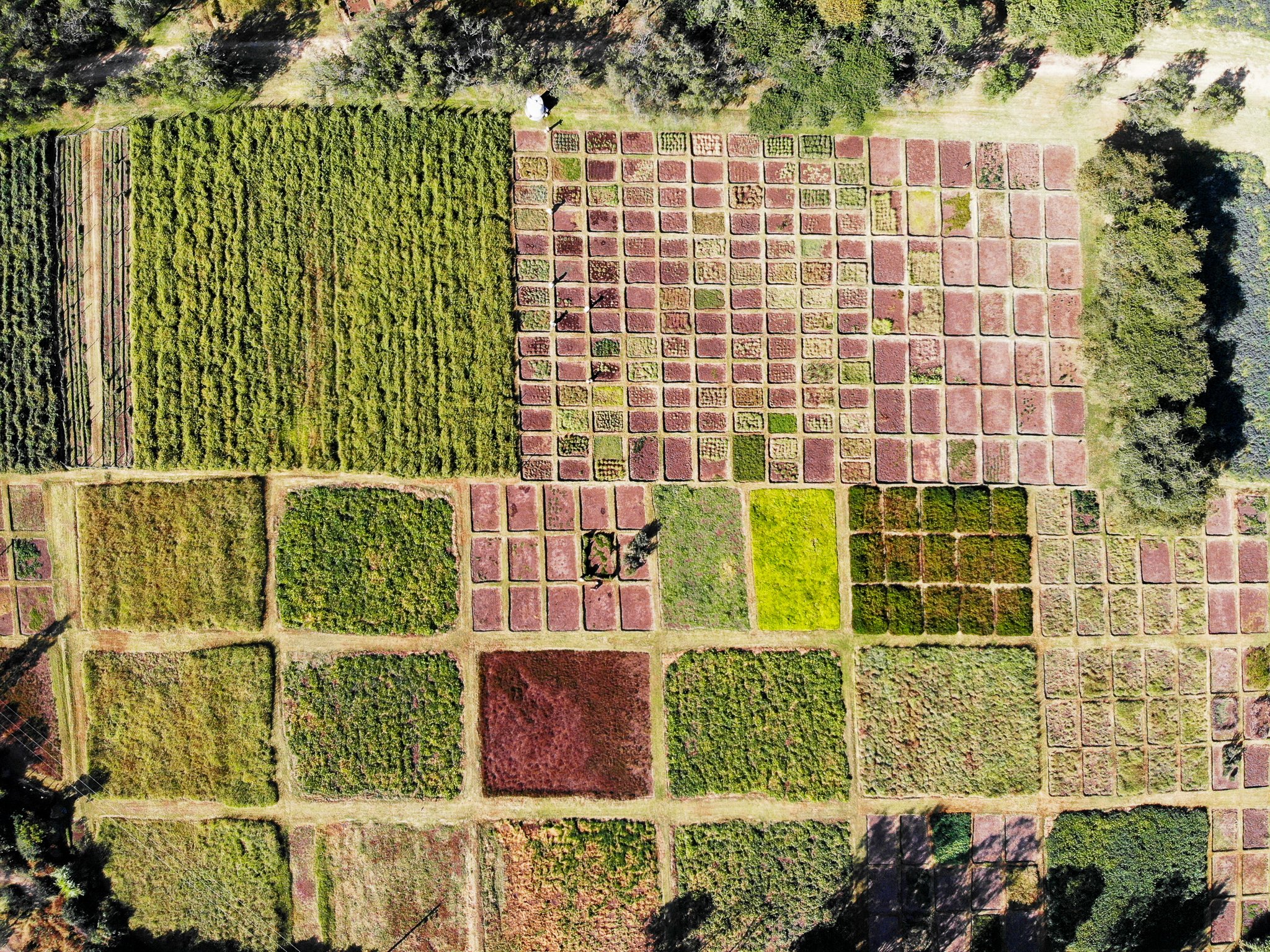
The joint celebration of these significant milestones marks the ILRI Forage Genebank’s entry into a new phase, focusing on combating climate change. This phase will leverage advanced genomic and machine learning tools and technologies to enhance conservation efficiency and accelerate germplasm improvement to develop climate-smart innovations that address current and future challenges.
‘ILRI’s forage resources contribute to ensuring that our livestock practices remain robust and responsive to the ever-evolving challenges of climate change and food security. Simultaneously, we are marking the International Day for Biological Diversity (22 May), and I am thrilled to acknowledge EBI’s vibrant campaign, “Be part of the plan,” that urges all stakeholders to take decisive action to stop and undo the decline of biodiversity – a shared responsibility crucial to our future,’ said Appolinaire Djikeng, director general of ILRI and senior director of Livestock-Based Systems, CGIAR.
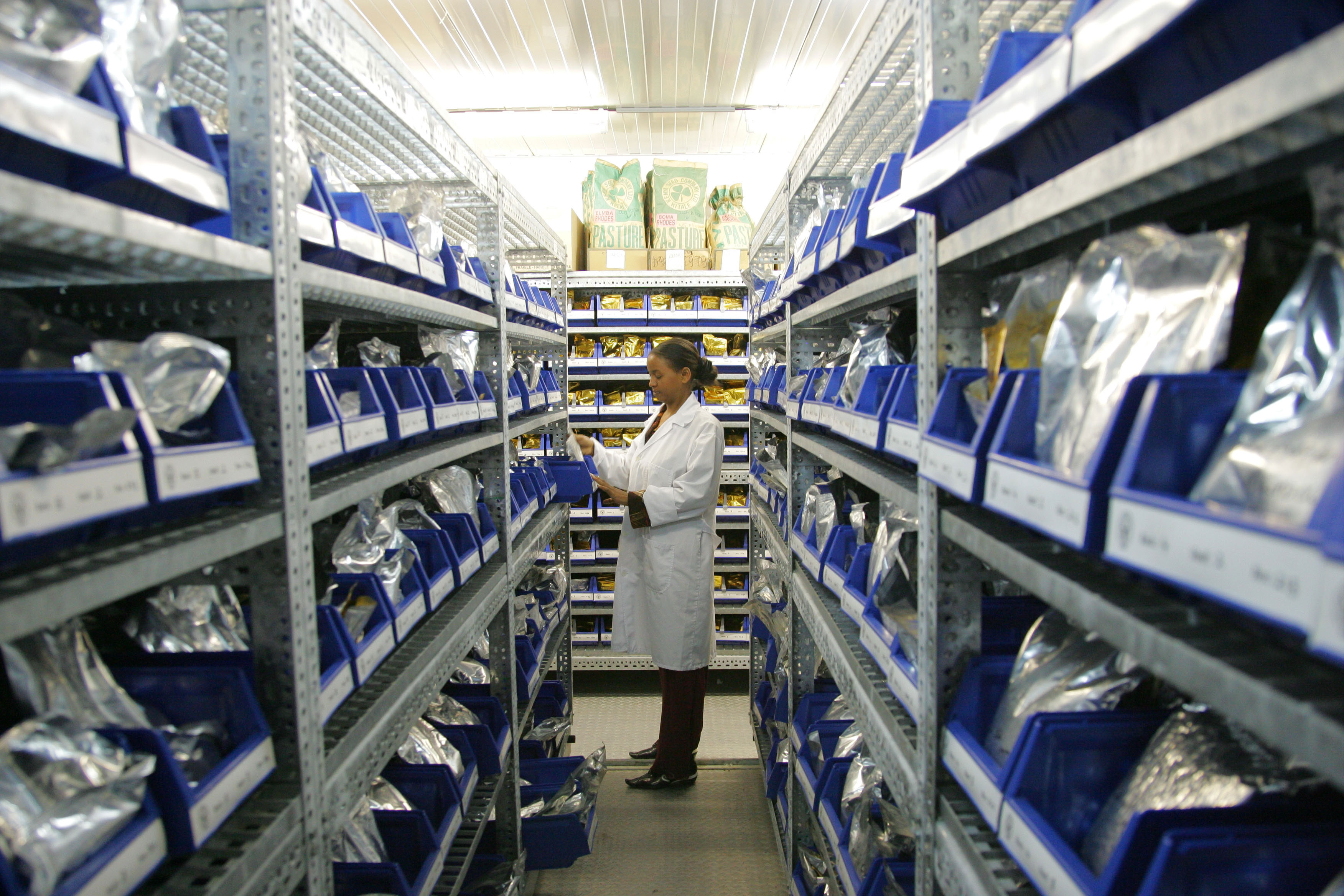
Over the last 40 years, the ILRI Forage Genebank has played a pivotal role in the livestock sector across several key domains:
- Genetic resources conservation: The genebank preserves a diverse collection of forage accessions, including indigenous species pivotal for the Ethiopian ecosystem. This conservation endeavour ensures the availability of genetic resources for breeding programs aimed at enhancing livestock productivity and resilience to environmental adversities.
- Forage improvement: By evaluating forage resources for agronomic performance, nutritional traits, and resistance to pests and diseases, ILRI contributes to the development of improved forage varieties tailored to local conditions. These varieties can enhance the quality and availability of livestock feed, thereby boosting productivity and reducing livestock vulnerability to feed shortages.
- Capacity building: ILRI offers training opportunities for Ethiopian scientists and associates in germplasm management, seed production, and other relevant domains. By fostering local capacity, ILRI empowers Ethiopian researchers to effectively contribute to forage conservation and utilization efforts, thereby promoting sustainable development of the livestock sector.
- Knowledge sharing: Through the dissemination of seeds to smallholder farmers and the provision of technical assistance, ILRI facilitates the adoption of improved forage varieties and sustainable farming practices. This knowledge exchange enhances the resilience of Ethiopian livestock systems and improves the livelihoods of rural communities reliant on livestock for income and nutrition.
- Environmental sustainability: Forages play a pivotal role in enhancing natural assets by improving soil fertility, reducing erosion, controlling pests, and providing environmental services such as carbon sequestration and water productivity. By advocating for the use of diverse forage species, ILRI contributes to sustainable land management practices that benefit both livestock production and the environment.
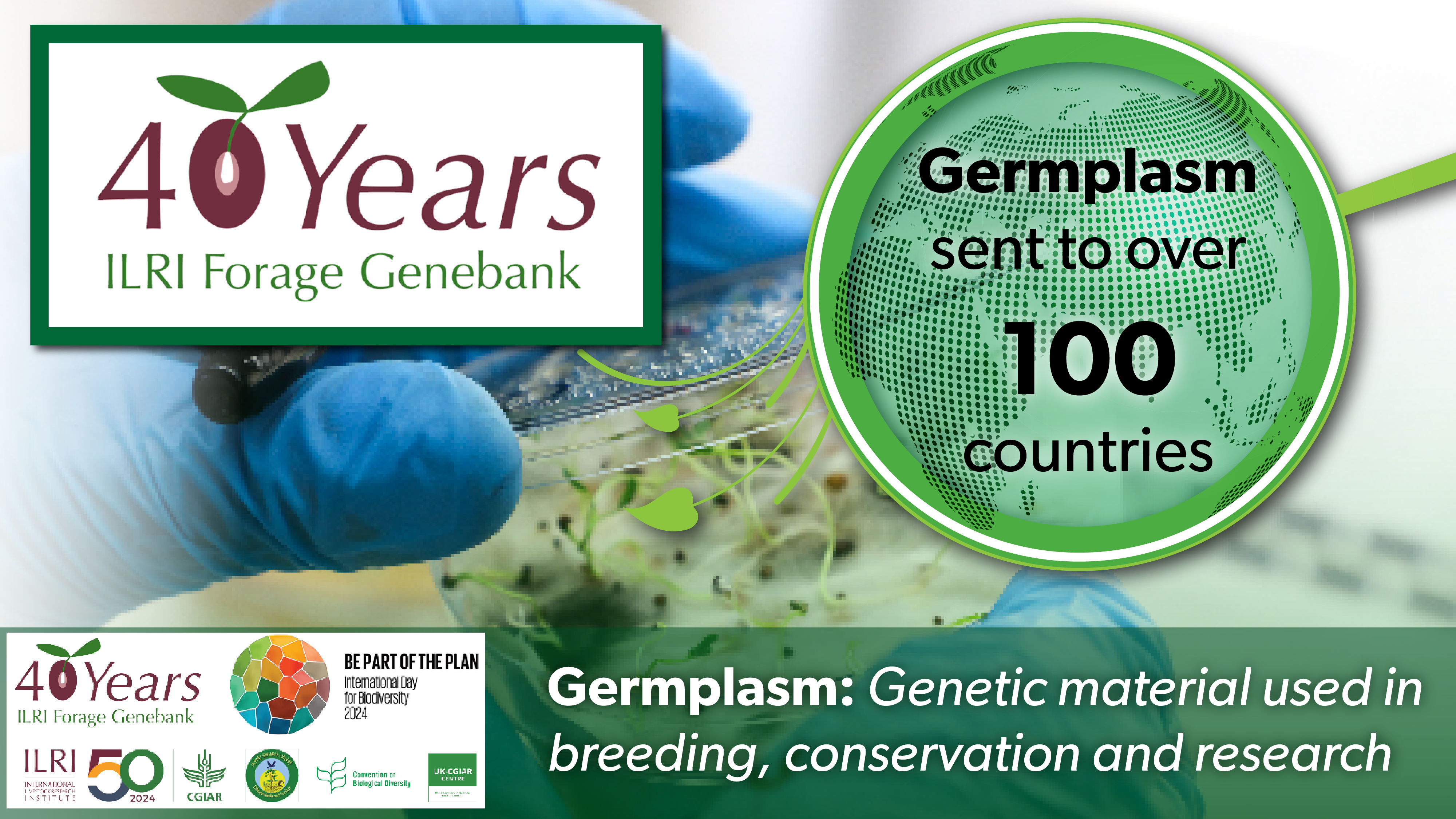
To fulfil its mission, the ILRI Forage Genebank collaborates with various stakeholders, including the Ethiopian Institute of Agricultural Research, the Ethiopian Ministry of Agriculture, and the Ethiopian Biodiversity Institute.
Learn more about the ILRI Forage Genebank.
You may also like
Related Publications
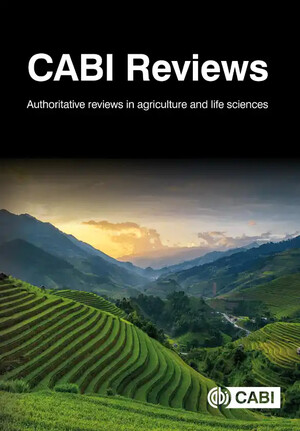
Locally led adaptation and climate-smart agriculture: A review of two conceptual framings of responses to climate change in LMICs
- Habermann, Birgit
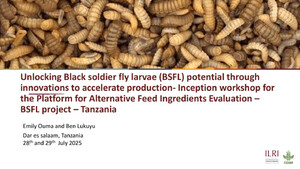
Unlocking Black soldier fly larvae (BSFL) potential through innovations to accelerate production
- Ouma, Emily A.
- Lukuyu, Ben A.
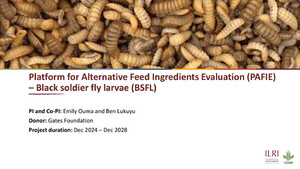
Platform for Alternative Feed Ingredients Evaluation (PAFIE)—Black soldier fly larvae (BSFL)
- Ouma, Emily A.
- Lukuyu, Ben A.





